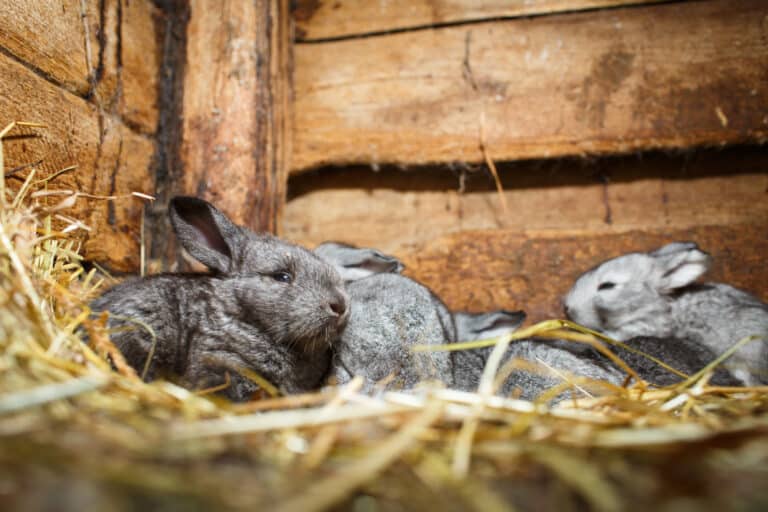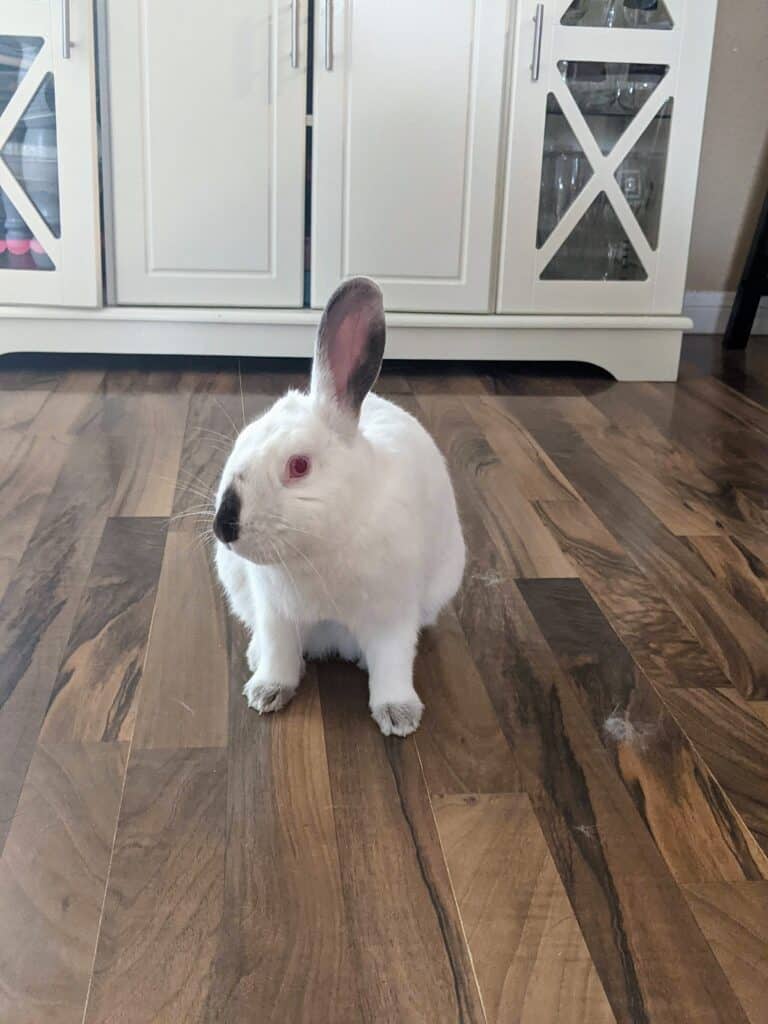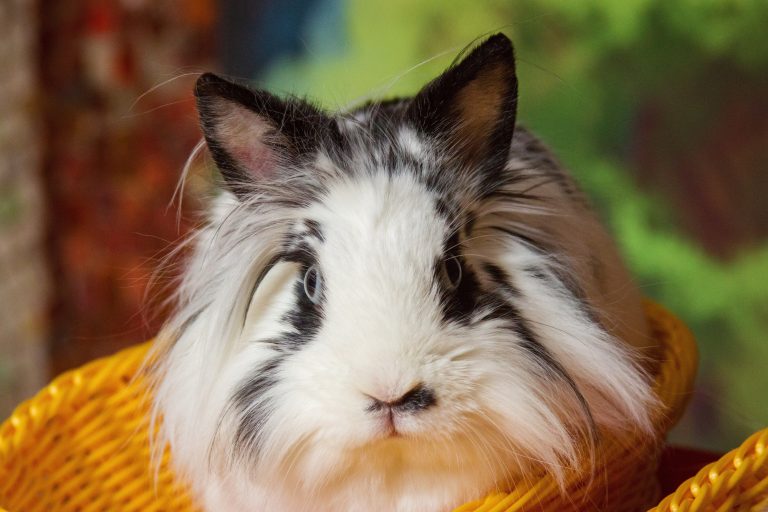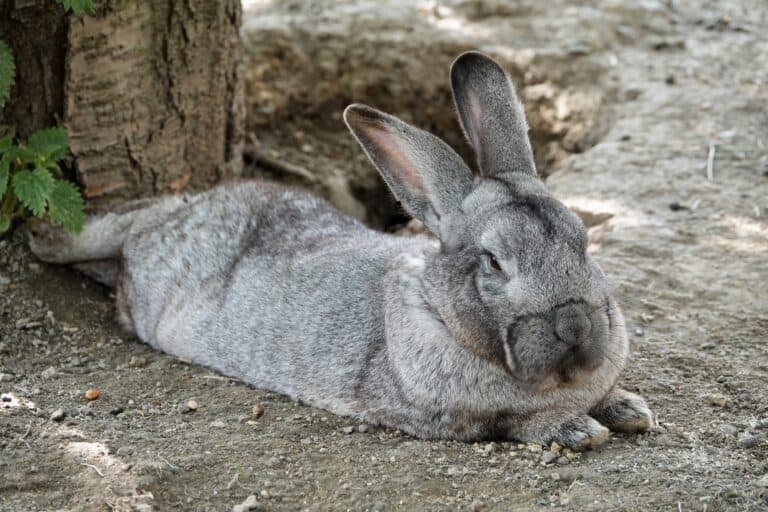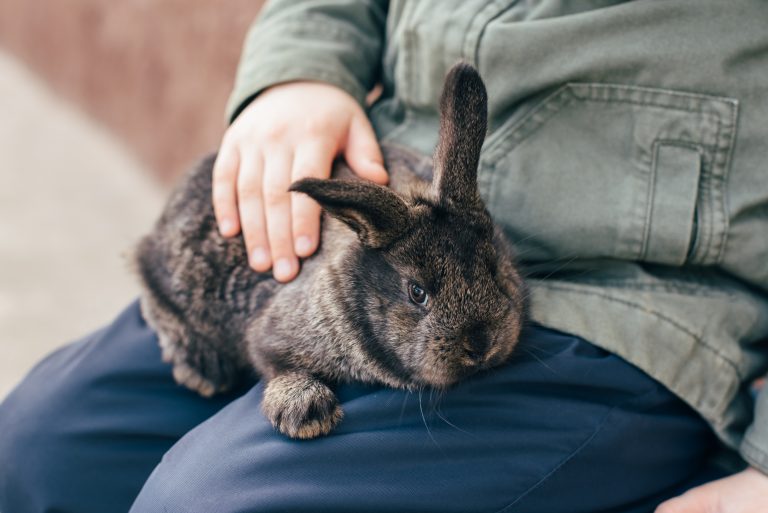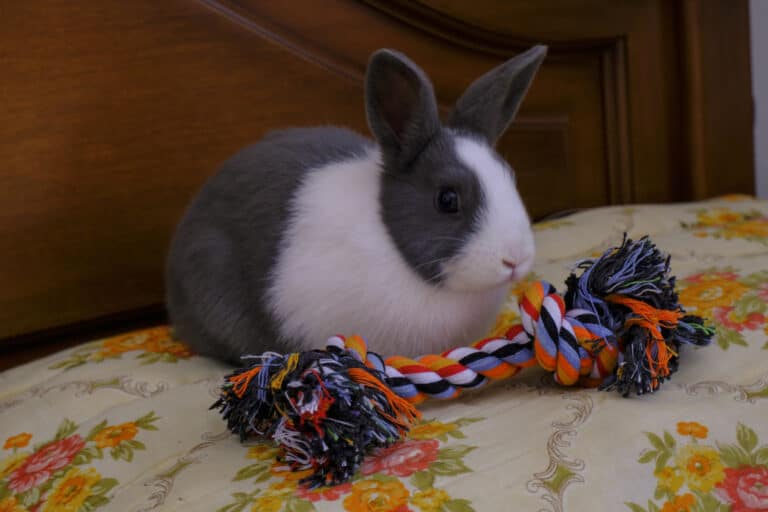How to Care for a Pregnant Rabbit

Rabbits are known for their exceptional reproductive abilities. The female buns or does can get pregnant in the blink of an eye, or so it seems. Putting together an intact male and female rabbit on purpose or by accident almost always leads to a litter of fluffy bunnies. In this case, you’ll need to know how to care for a pregnant rabbit to ensure that the baby buns or kits come out into the world healthy and strong.
Fortunately, you don’t need to be an expert to help the mother-to-be have a successful pregnancy and that things turn out the way they should. Let’s see what a pregnant doe needs while she carries her young and after she gives birth.
This post contains affiliate links. Affiliate links support Every Bunny Welcome at no additional cost to you. I receive a commission if you choose to make a purchase through these links.

When Can Rabbits Get Pregnant?
Rabbits can mate and get pregnant upon maturity. For female buns, this occurs between 4 and 8 months, depending on the breed. Smaller bun breeds mature at around 3 to 5 months, while larger breeds reach that state at 5 to 8 months.
During that period, the female rabbits enter their first heat cycle. After that, the does never stop being in heat, which means they can get pregnant anytime. They can even get conceive again immediately after giving birth.
How to Tell If Your Rabbit Is Pregnant
At the outset, you won’t see many signs that the doe is carrying her young in her tummy. But as the pregnancy progresses, your pet will exhibit certain behaviors and physical changes that will tell you that she’s going to have a baby, or several babies as often happens. Knowing what to look for will help ensure you can take proper care of your pregnant rabbit.
Not all pregnant buns will have the same symptoms, but here are the more common ones.
Digging
Rabbits in the wild live in burrows, and they dig to build a nest for their babies. This is hardwired into your bun, so seeing her dig intensely around her cage can signify that baby bunnies are on the way.
Aggression
Female buns can turn aggressive and territorial a few days after they’ve become pregnant. If your usually sweet-natured bun starts growling at you, or she turns into one grumpy rabbit, get ready to welcome a litter of baby bunnies.
Be extra careful around your rabbit during this period, as she may bite when she doesn’t want to be held. Don’t worry, she’ll return to her usual self soon enough.
Nesting Behaviors and Fur Pulling
This is one of the most apparent and definitive signs of pregnancy. A few days before she gives birth, your rabbit will usually start building a nest frantically. She will gather hay or bedding material into a corner or dig to make a small burrow. If there isn’t enough nesting material, she could even pull fur from her sides, abdomen, and dewlap to enlarge the nest and to use as a blanket to keep the baby bunnies warm. The little ones are born without fur, so they need protection from the cold.
Weight Gain
Like most creatures, rabbits get bigger when they’re pregnant. However, the extra weight may not be noticeable, especially during the early days of gestation. To have a baseline reference, weigh your mature bun if she was with an intact male and repeat the procedure every week. A digital weighing scale will let you detect the weight gain and help you track the increases.
Movement in Her Tummy
During the last days of the pregnancy, you may observe little jumps in your pet bun’s sides. These are the baby rabbits moving inside her. But even before this happens, you may be able to feel the bunnies when you stroke her belly.
A Note about False Pregnancies
Sometimes, a doe will exhibit signs of pregnancy, such as mood changes and nesting behaviors. This happens because the rabbit is convinced she’s carrying her young even when she isn’t. Some reasons behind the phantom or pseudo-pregnancy are the following:
- Sexual stimulation caused by mounting: Because does are always in heat, being mounted, even by neutered males or female buns, can stimulate them and make them think they’re pregnant.
- Stress: Being in stressful situations can cause a rabbit to ovulate.
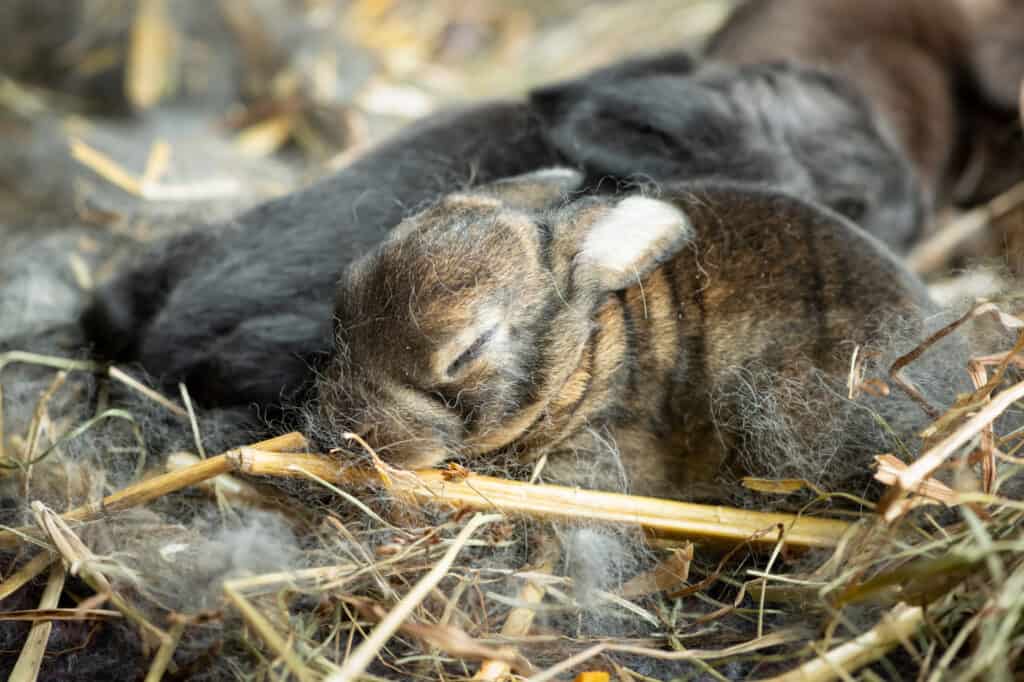
How to Care for a Pregnant Rabbit
More often than not, the mother rabbit can take care of herself. Still, you can make your pet more comfortable during and after her pregnancy by doing the following.
Remove the Male Rabbit
If the male and female rabbits share a cage, you’ll need to separate them for the time being. The presence of the male can stress the new mom. Moreover, the 2 rabbits could mate as soon as the doe gives birth, causing a pregnancy.
Make sure, though, that the couple can see and smell each other. Bonded rabbits can get depressed if they’re completely separated from their partners. Keep them in adjoined cages or place a barrier between them, such as a chicken wire.
Provide Extra Food
The doe will be feeding several hungry mouths, so she’ll require more calories and nutrients. She’ll likely have a bigger appetite, which is understandable. Increase the food you give, including fresh veggies and hay.
Mix some Alfalfa Hay, which has more calcium and protein, with her regular hay. Don’t make the mistake of giving milk to the new mom. Adult rabbits don’t drink the stuff, and offering it to the doe could do more harm than good.
Handle Your Rabbit with Care
Some buns who have just given birth don’t like being held, so avoid handling the doe as much as possible. But if you have to do so, be extra careful to avoid hurting the new mom.
Encourage Daily Exercise
Exercise is vital to all rabbits, including the new moms. Let your bun out of the cage and provide opportunities for her to move around. Moving around promotes good blood circulation, which, in turn, will get the necessary nutrients to her babies.
Create a Suitable Living Environment
Your rabbit will want to make a nest for her babies, so give her suitable nesting materials. Also, make sure there’s enough space in the cage for the doe and the new bunnies.
Female rabbits can give birth to as many as 14 little ones. A pen or crate measuring 25–30 in (64–76 cm) x 15 in (38 cm) is ideal for the new family until the babies can be separated from their mother. Of course, if you can provide something bigger, that’s even better.
Keep Stress to a Minimum
Keep your pregnant bun in a calm and quiet environment. Her lodging area should be private, away from foot traffic and noisy appliances. It should also be protected from other pets and predators.
Taking care of a pregnant rabbit need not be challenging as all buns, pregnant or not, require the same loving attention you should be willing to provide if you get a fur companion.
More on Rabbit Care
- How Long Do Flemish Rabbits Live: Giant Breed Facts
- Complete Guide to the Best Hay For Rabbits: Reviews & More
- Are Rabbits Rodents? Find Out More About These Small Mammals
- Is Oat Hay Good for Rabbits? Complete Guide to the Best Hay
- Why Do Rabbits Lick You? 11 Reasons for This Common Behavior
We hope you enjoyed this post! If you did, will you give it a share or two 🙂 Thank you! ~from Every Bunny Welcome


